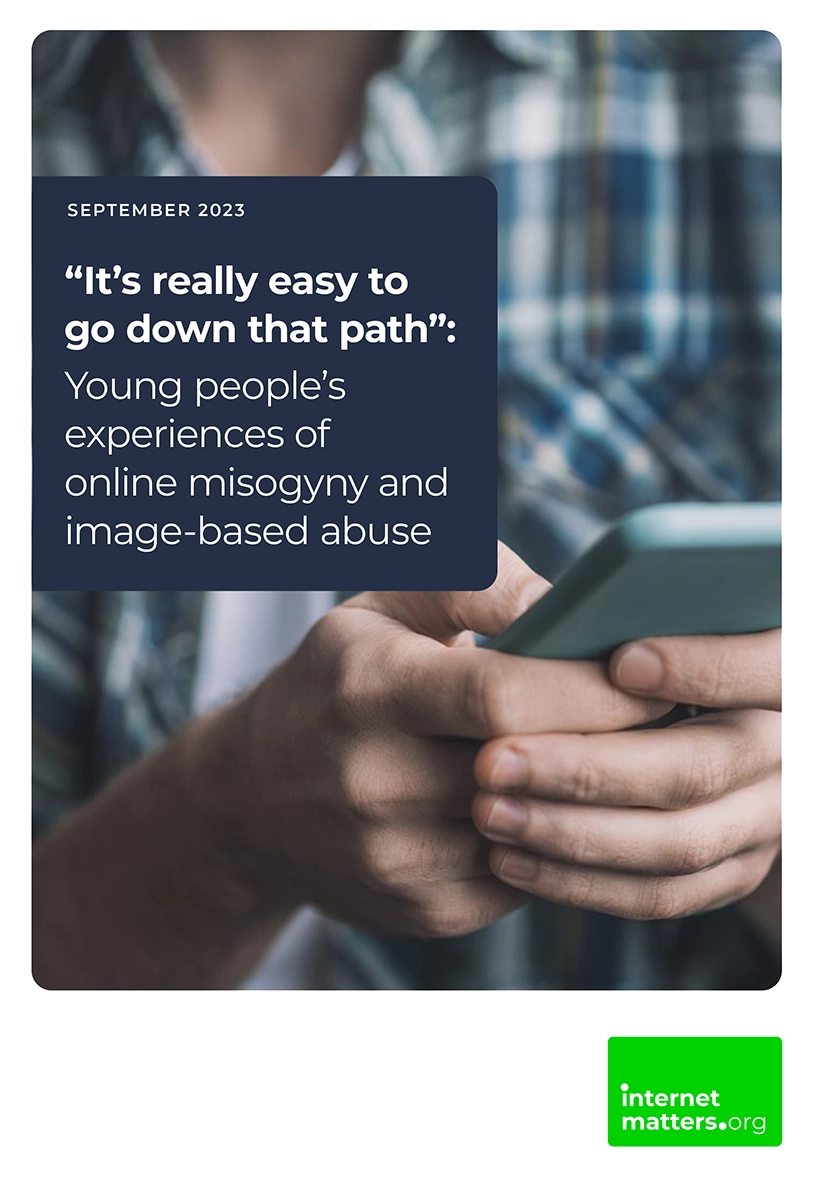New research on children’s exposure to misogyny from Internet Matters reveals that it is becoming increasingly difficult for parents and professionals to keep children safe online with the public profiles of ‘misogynist influencers’ continuing to rise.
Self-proclaimed misogynist Andrew Tate, boasts more than 7.9 million followers on X (formerly known as Twitter), to whom he promotes outdated gender values, rooted in violence against women and girls.
Over the past year, countless conversations among parents and teachers in regard to misogyny have been dominated by Tate and he is a prominent member of the ‘manosphere’ – a collection of communities united in their hate-filled views on women and girls.
Seeking to understand more about the manosphere’s spread and influence on family life, Internet Matters surveyed over 2,000 parents and 1,000 children aged 9 to 16 and spoke to parents and teenagers in a series of focus groups.
The report revealed that awareness of Andrew Tate is higher among parents (81%) than children (59%), yet awareness increases among children with age, with 75% of children aged 15-16 aware of Tate.
Teenage boys aged 15-16 (23%) and dads (26%) are significantly more likely to state that they know ‘a lot’ about Andrew Tate than girls aged 15-16 (11%), and mums (16%).
Almost a quarter (23%) of teenage boys aged 15-16 are positive about Andrew Tate. Boys in the focus groups also talked about the ubiquitous and inescapable presence of Tate’s content in their social media lives and feeds.
More surprisingly, an even higher proportion of dads have a positive view of Andrew Tate.
A third of dads (32%) have a favourable opinion of Tate, compared to 10% of mums. The divergence in attitudes to Tate is even more stark among younger parents. Over half (56%) of younger dads (those aged between 25-34) have a positive view of Tate, compared to 19% of mums the same age.
Younger dads are also more likely to believe that their child has a positive impression of Andrew Tate. Almost half (49%) of young dads aged between 25-34 believe that their child has a positive impression of Tate, compared to 17% of mums the same age.
This raises concerns given the central role that parents play in educating their children about misogyny and harmful online influences.
It still remains unclear what exactly young dads are finding appealing about Tate, though it is suggested this could be down to the finance and business advice he offers his followers.
However, his violent misogynist rhetoric is so deeply embedded that it cannot be assumed that all dads are able to critically consume his content and draw a divide between ‘motivation’ and misogyny.
Internet Matters has observed the challenges that many parents and teachers face in combating the influence of Andrew Tate. It can be exceedingly difficult for parents and teachers to counter harmful views once they have taken root. Proactive conversations about harmful content – including how misogynistic rhetoric is damaging to boys, girls and those who identify as LGBTQ+ – must be held before children are at risk of encountering it online. Internet Matters’ research suggests that age-appropriate conversations should happen before children reach secondary school age.
The findings within the report also suggest that platforms and the Government must pick up more of the responsibility to protect children from online misogyny, alongside parents and schools.
By making platforms safe by design and ensuring that all children have quality preventative education on issues around sexual violence and misogyny, it will minimise the effects of overt misogyny.






